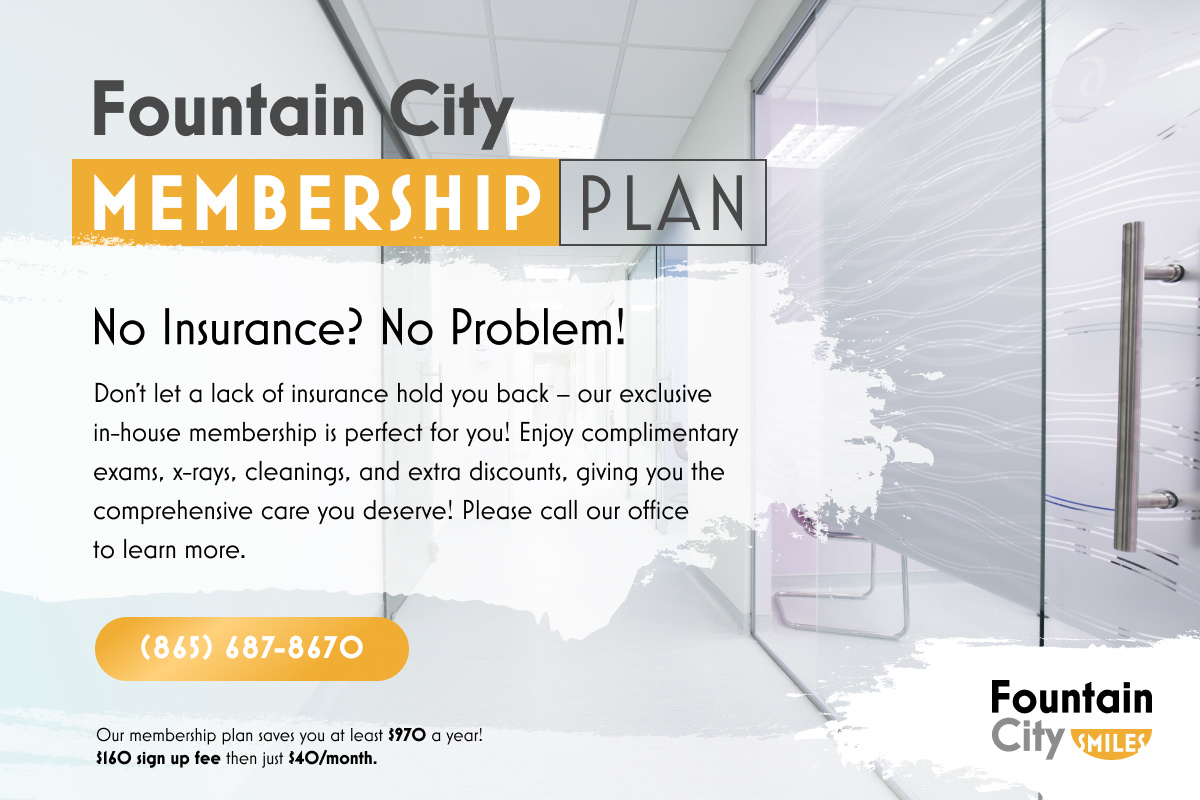How to Spot Early Signs of Oral Cancer
Our Dentist Near You Educates Patients on Oral Cancer Signs Oral cancer is a serious condition that affects thousands of people every year, but the good news is that early…
Read More Travel Dental Emergencies and Prevention
Your Complete Guide to Worry-Free Travel Picture this: You’re halfway through your dream vacation when severe tooth pain strikes. Dental emergencies don’t follow your travel schedule; they seem to have…
Read More Smoky Mountain Adventures: Can You Hike and Camp with New Porcelain Veneers?
Your New Veneers Won’t Stop Your Smoky Mountain Adventures Living in East Tennessee means having the Great Smoky Mountains National Park practically in your backyard. From the scenic trails of…
Read More Why You Shouldn’t Skip Flossing
Flossing Tips from Our Knoxville Dentist Flossing is often the most overlooked part of oral hygiene, yet it’s one of the most critical steps for maintaining healthy teeth and gums.…
Read More 5 Signs You Need a Root Canal
Do You Need a Root Canal in Knoxville? When it comes to dental health, ignoring persistent symptoms can lead to bigger problems down the road. One of the most common…
Read More Why Energy Drinks Are Creating a Dental Crisis Among Young Adults
When Your Energy Boost Becomes Your Teeth’s Nightmare Your morning pick-me-up might be picking apart your teeth. Across the country, dentists are witnessing an alarming trend: young adults between 20…
Read More Complete Dental Care in One Place: Skip Knoxville Traffic Headaches
Why Knoxville Residents Choose Complete Dental Care If you’ve lived in Knoxville for any length of time, you know our beautiful city has been experiencing growing pains when it comes…
Read More Dental Implant Emergencies
Our Emergency Dentist Near You Is Here When You Need It Dental implants are an excellent solution for missing teeth. They’re durable, long-lasting, and look and feel like natural teeth.…
Read More Taste Science and Dental Health in Knoxville, TN
How Dental Conditions Alter Flavor Perception At Fountain City Smiles in Knoxville, TN, we understand oral health affects far more than just your smile—it directly impacts how you experience the…
Read More Can I Get Dental Implants if I Have Bruxism?
Replacing Missing Teeth with Dental Implants in Knoxville If you grind your teeth, you might wonder, can I still get dental implants? The short answer is yes, but with careful planning.…
Read More 






